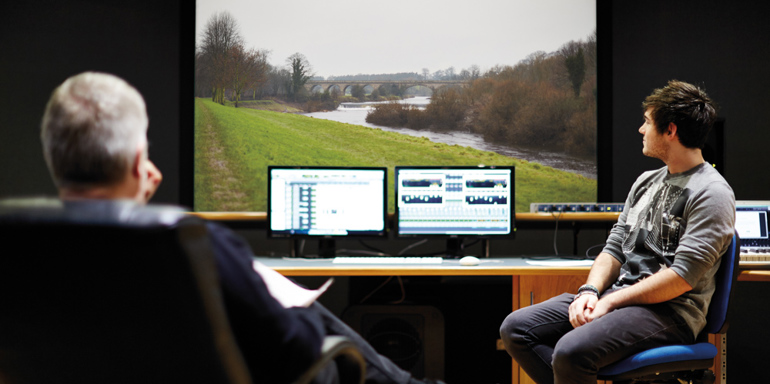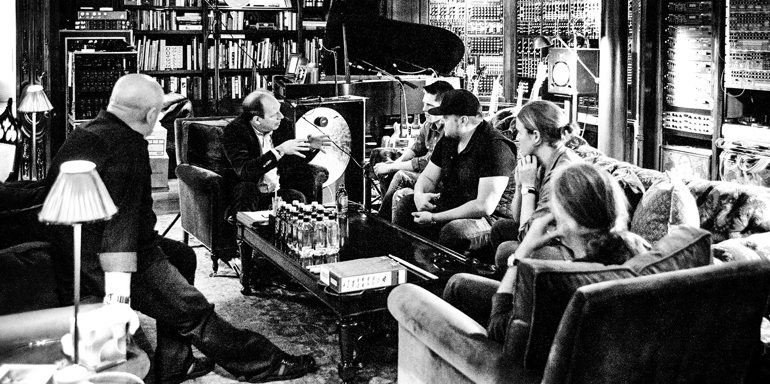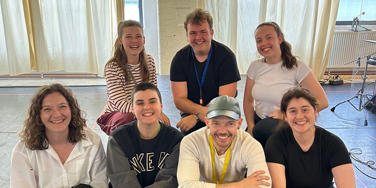Composing for Film and TV
Credit value: 20
You’ll be introduced to the fundamentals of composing for film and television. You’ll explore different approaches to scoring Film and TV and how music interacts with visual media. Through interactive group seminars, you’ll be able to discuss your work, share opinions and ideas with your peers and explore how music shapes narrative and emotion in moving images.
This module is delivered through a combination of lectures, seminars, and principal study composition. Assessment includes a composition portfolio.
Learning and teaching hours: 30 (15%)
Directed study hours: 170 (85%)
Composing for Video Games and Library Music
Credit value: 20
You’ll build on your Semester 1 skills in composition to discover more advanced techniques in composing for library music and video games. Through collaborative workshops, you’ll have the opportunity to explore and refine your compositional voice. You’ll be able to strengthen your understanding of the emotional and narrative function of music for this specific genre of media.
This module is delivered through a combination of lectures, seminars, and principal study moving image composition. Assessment includes a composition portfolio.
Learning and teaching hours: 30 (15%)
Directed study hours: 170 (85%)
Creativity in Music for the Moving Image
Credit value: 20
You’ll establish a solid technical and creative foundation as you explore various compositional possibilities. You’ll develop confidence in how film, TV and games music is conceived and composed, the importance of understanding how emotion is generated through music, and its benefit and application to the moving image. Through seminars and collaborative study, you’ll be encouraged to share your work and discuss films and film music at length and in detail with your tutor.
This module is delivered through a combination of lectures and seminars. Assessment includes a composition portfolio and essays.
Learning and teaching hours: 30 (15%)
Directed study hours: 170 (85%)
Film and TV Music Analysis
Credit value: 20
This module builds on your understanding of composing for the moving image by bringing together your compositional skills and orchestration knowledge through an analytical approach. You’ll analyse a broader spectrum of film, TV and game scores and challenge yourself to apply your knowledge in diverse and complex scoring scenarios. This module will help you to grow confidence in your analytical skills and your abilities as a musician.
This module is delivered through a combination of lectures and seminars. Assessment includes a composition portfolio and essays.
Learning and teaching hours: 30 (15%)
Directed study hours: 170 (85%)
Producing Music for the Moving Image
Credit value: 20
On this module you’ll further develop your music production, theory and aural knowledge. You’ll deepen your understanding of digital audio workstation techniques and music theory that applies to compositional approaches for music for the moving image.
This module is delivered through a combination of lectures and workshops. Assessment includes a production and composition portfolio and a notion/theory examination.
Learning and teaching hours: 30 (15%)
Directed study hours: 170 (85%)
Production, Theory and Aural Skills
Credit value: 20
You’ll learn the foundational elements of music production, music theory and aural skills essential for composing and producing music for Film, TV, and Games. You’ll develop key practical skills in digital audio workstations (DAWs), basic editing techniques, and core music theory. Through practical workshops and theoretical lectures and seminars, you’ll develop technical proficiency and an understanding of the principles of music production.
This module is delivered through a combination of lectures and workshops. Assessment includes a practical music production task and an examination of theory and aural skills.
Learning and teaching hours: 30 (15%)
Directed study hours: 170 (85%)

















